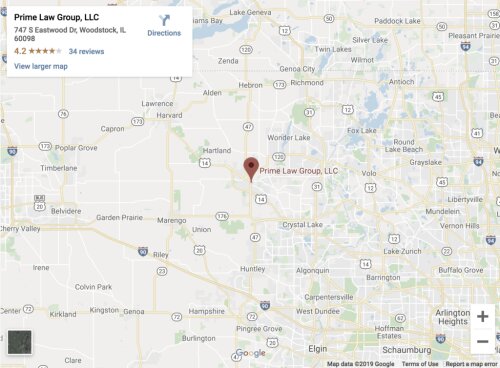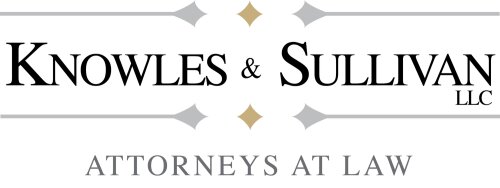Best Accounting & Auditing Lawyers in Alabama
Share your needs with us, get contacted by law firms.
Free. Takes 2 min.
Or refine your search by selecting a city:
List of the best lawyers in Alabama, United States
About Accounting & Auditing Law in Alabama, United States
Accounting and auditing law in Alabama governs the practices, standards, and regulations for financial reporting, bookkeeping, and independent verification of financial records. Accountants, auditors, and firms performing these services must adhere to state requirements to ensure transparency, accuracy, and legal compliance. Proper accounting and auditing are essential for businesses, non-profits, government agencies, and individuals who require clear financial statements and accurate tax filings. The relevant laws exist to protect the public from fraud, misrepresentation, and financial mismanagement, while also setting standards for professional conduct in the field.
Why You May Need a Lawyer
Seeking legal assistance regarding accounting and auditing matters is often crucial in several scenarios. Some common situations when you may need a lawyer include:
- Facing a state or federal audit that could result in penalties or criminal charges
- Being accused of accounting fraud or mismanagement
- Disputes with tax authorities regarding tax liability or improper filings
- Concerns about the legality of accounting practices within your company or by your accountant
- Launching or dissolving a business and needing to ensure all financial documentation complies with Alabama laws
- Ensuring compliance with Alabama’s specific requirements for accountants and auditors
- Reviewing or drafting contracts that contain significant financial terms or reporting requirements
- Dealing with alleged breaches of fiduciary duty or misappropriation of funds
- Advising on internal controls and risk management strategies to prevent future legal issues
- Responding to subpoenas or investigations from regulatory agencies
Local Laws Overview
In Alabama, the practice of accountancy is regulated by the Alabama Board of Public Accountancy. All Certified Public Accountants (CPAs) and public accounting firms must meet specific licensure requirements set by state law. Key laws include the Alabama Accountancy Act, which outlines licensing, continuing education requirements, ethical standards, and disciplinary actions for violations. Alabama law also incorporates standards from relevant national bodies, such as the American Institute of Certified Public Accountants (AICPA), for audit practices and ethical guidelines. Financial records must be maintained in accordance with both state and, in many cases, federal law. Businesses are required to keep accurate financial records both for tax purposes and in case of audit. Alabama has its own state tax code and requires annual filings from businesses and individuals. Non-compliance can result in severe penalties, including fines and possible criminal action. Further, Alabama recognizes various levels of accountant-client privilege, which provides limited protection for client information in legal proceedings. However, this is not as broad as attorney-client privilege and has important exceptions, such as in cases of suspected fraud.
Frequently Asked Questions
What qualifications are required to practice accounting or auditing in Alabama?
Accountants must be licensed by the Alabama Board of Public Accountancy to practice as a Certified Public Accountant. CPAs must meet education, examination, and experience requirements, plus adhere to ongoing continuing education and ethical standards.
How are accountants regulated in Alabama?
Accountants in Alabama are regulated by the Alabama Board of Public Accountancy, which sets licensing criteria, reviews complaints, conducts investigations, and enforces disciplinary measures where necessary.
What should I do if I am being audited by the Alabama Department of Revenue?
If you receive notice of an audit, consult with a lawyer or a qualified CPA immediately. Gather all relevant financial records and correspondence, and do not destroy or alter any documents.
When can an accountant in Alabama be held liable for malpractice?
An accountant may be held liable if they fail to meet professional standards, misrepresent financial data, or do not comply with applicable laws. This includes negligence, fraud, or other breaches of duty.
Does Alabama law offer accountant-client privilege?
Alabama offers limited accountant-client privilege, particularly in state tax matters. However, these communications may still be disclosed in certain legal proceedings, especially those involving allegations of fraud.
What penalties can result from accounting fraud in Alabama?
Penalties can include fines, loss of licensure, civil liability for damages, and potentially criminal prosecution resulting in imprisonment, depending on the severity and circumstances.
Are nonprofit organizations in Alabama subject to accounting and auditing laws?
Yes, nonprofits must maintain accurate financial records, may be subject to regular audits, and must comply with both state and federal reporting requirements.
Do businesses need audited financial statements in Alabama?
Not all businesses are legally required to obtain audited financial statements, but specific circumstances such as loan agreements, public offerings, or regulatory compliance may impose this requirement.
How often do CPAs have to renew their licenses in Alabama?
Alabama CPAs must renew their licenses annually and fulfill continuing education requirements as set by the Alabama Board of Public Accountancy.
What should I do if I suspect financial mismanagement within my organization?
Consult with a lawyer experienced in accounting and auditing matters to review your findings, advise on next steps, and ensure you remain compliant with Alabama law while addressing your concerns.
Additional Resources
Several organizations and agencies can offer additional assistance:
- Alabama Board of Public Accountancy - Licensure, regulations, complaint processes
- Alabama Department of Revenue - State tax information, audits, and compliance
- American Institute of Certified Public Accountants (AICPA) - National auditing and accounting standards
- Alabama Society of Certified Public Accountants - Professional guidance and local resources
- Internal Revenue Service (IRS) - Federal tax guidance and audits
- Local law libraries or county bar associations - Access to state statutes and legal professionals
Next Steps
If you require legal assistance in accounting or auditing matters in Alabama, begin by gathering all relevant documentation, including correspondence, contracts, and financial records. Identify the specific issue or concern you are facing to better communicate with a legal professional. Next, consult with an attorney or a CPA with experience dealing with Alabama's accounting and auditing laws. Ask about their familiarity with state-specific regulations and any relevant experience handling situations similar to yours. For complex or high-stakes matters, it may be worthwhile to seek a specialist or request referrals from the Alabama State Bar or professional associations. Be proactive, as swift action can often prevent more serious financial or legal consequences.
Lawzana helps you find the best lawyers and law firms in Alabama through a curated and pre-screened list of qualified legal professionals. Our platform offers rankings and detailed profiles of attorneys and law firms, allowing you to compare based on practice areas, including Accounting & Auditing, experience, and client feedback.
Each profile includes a description of the firm's areas of practice, client reviews, team members and partners, year of establishment, spoken languages, office locations, contact information, social media presence, and any published articles or resources. Most firms on our platform speak English and are experienced in both local and international legal matters.
Get a quote from top-rated law firms in Alabama, United States — quickly, securely, and without unnecessary hassle.
Disclaimer:
The information provided on this page is for general informational purposes only and does not constitute legal advice. While we strive to ensure the accuracy and relevance of the content, legal information may change over time, and interpretations of the law can vary. You should always consult with a qualified legal professional for advice specific to your situation.
We disclaim all liability for actions taken or not taken based on the content of this page. If you believe any information is incorrect or outdated, please contact us, and we will review and update it where appropriate.
Browse accounting & auditing law firms by city in Alabama
Refine your search by selecting a city.













